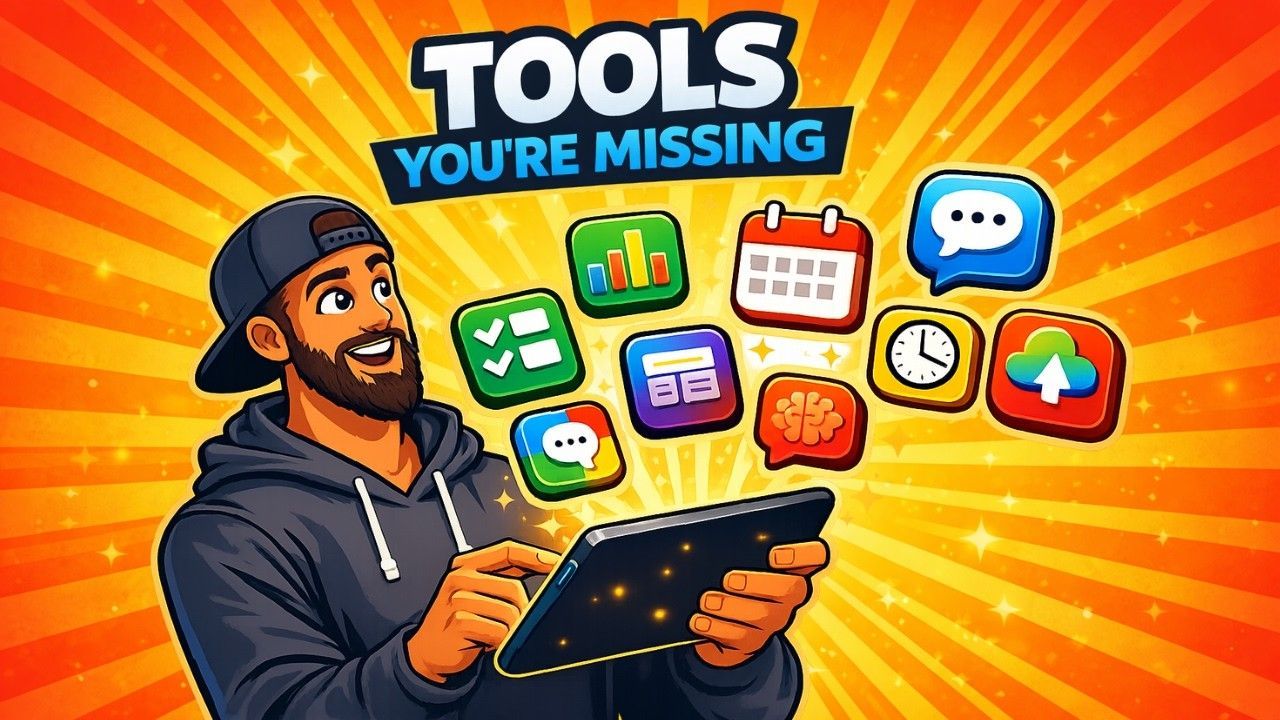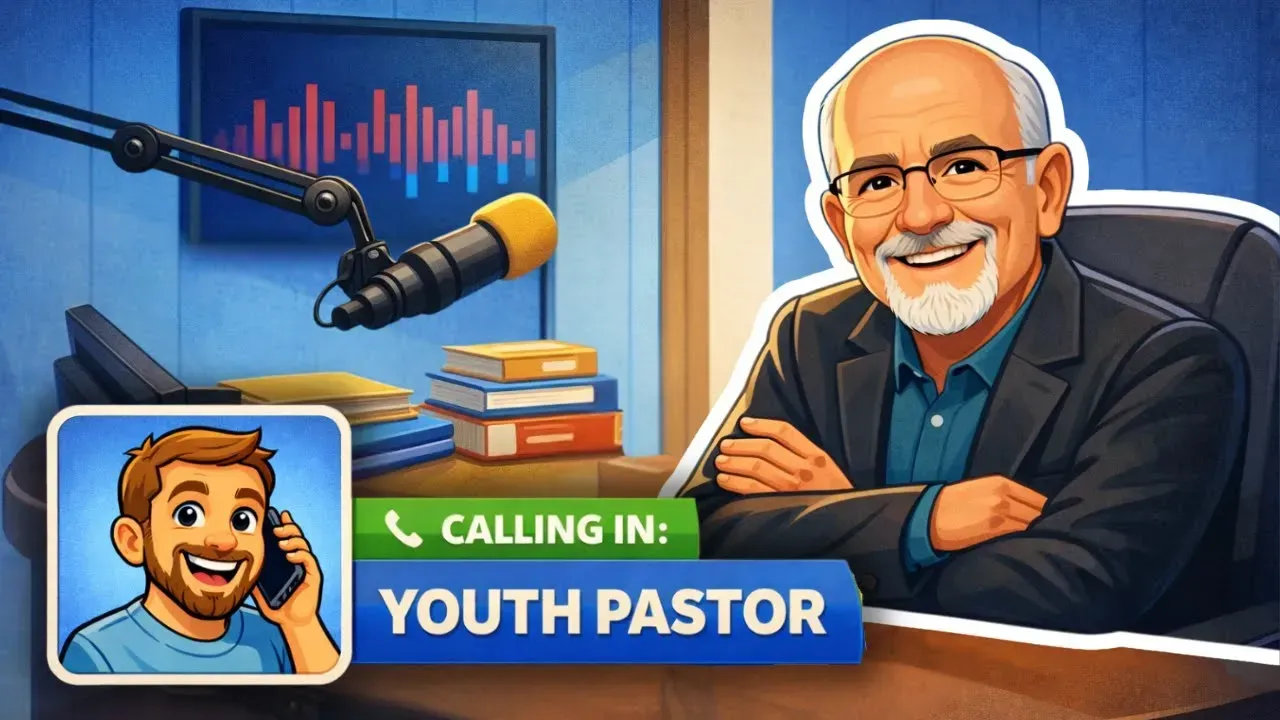A First-Year Blueprint for Youth Pastors: Build What Lasts (Not What’s Loud)
The Beginner’s Blueprint for Building a Youth Ministry
Most youth pastors don’t burn out because they stop loving Jesus or students—they burn out because they build the wrong things first. If you’re stepping into a new role (or relaunching after a lull), here’s a simple, durable blueprint drawn from years in the trenches to help you use your first months wisely and set a healthy trajectory for years to come.
1) Start in Prayer (Really. Build on it.)
When you’re new, the to-do list feels endless—policies, calendars, lessons, games, purchases. The urgent crowds out the essential. But your primary role is spiritual shepherding, and ministries that start in prayer become ministries sustained by prayer.
Why it matters: Jesus modeled this (Mark 1:35). Prayer isn’t prep for “the real work”; prayer is the work (Oswald Chambers).
How to start this week
- Pray through your roster. Print it. If you’ve got 200 names, rotate letters or split across days so every student is covered regularly. No roster yet? Start basic check-in so you know whom God’s entrusted to you.
- Adopt local schools in prayer. Make simple flip cards (school name/mascot; include private/homeschool). Give sets to leaders and pray through them weekly.
- Guard personal communion. Don’t only “pray for ministry.” Linger with Jesus for your own holiness and joy (think Mary over Martha). Miss a morning? Give grace, then reset the rhythm.
2) Study the Culture Before You Change It
New leaders often “fix” things fast. But people usually attend because they like something about what’s happening. If you blow everything up on Day 1, you’ll have no allies to help rebuild.
How to study wisely
- Meet current leaders and volunteers. Hear testimonies, history, and pain points. You’ll spot red flags and hidden gold.
- Assess students spiritually. A simple tool like the Four Chair discipleship survey helps you see who’s exploring faith, new in Christ, growing, or multiplying. Strategy changes if 40 of 70 students don’t yet know Jesus versus if most do.
- Invite feedback—don’t outsource direction. Students’ desires matter, but they can’t define your discipleship pathway. Lead with love, clarity, and conviction.
“You can’t speak meaningfully to a culture you don’t understand.” —Ed Stetzer
3) Rely on Influence, Not Authority
Programs don’t change people—relationships do. Titles can move schedules; influence moves hearts.
What builds influence
- Show up where students are. Games, recitals, concerts. Early on, this is a superpower; steward it.
- Host a simple parent night. Give parents access to you and your aims. Some won’t come—and that’s okay. Influence the ones who do and keep communication lines open.
- Earn the mic off the stage. Be the “guide from the side,” not just the “sage from the stage.” People buy into the leader before they buy into the vision (John Maxwell).
A humbling side note: Great communicators weren’t born that way. Solicit honest feedback, study excellent preaching, and keep practicing. Influence grows when humility shows.
4) Multiply with Leaders (Adults and Students)
You won’t out-program a leadership deficit. Healthy teams hold expectations, accountability, and relationship together. Leave one out and you either drift, dictate, or get drained.
Quick wins
- Create (or refresh) a Leader Handbook. Clarify wins, roles, rhythms, and how you partner with parents. Put it in writing so you can pastor to a standard—not just correct in the moment.
- Protect the pipeline. Define the kind of leader you want, then resist filling spots just to fill spots. It’s far harder to “fire” a misfit volunteer than to say “not yet.”
- Develop, then decide. If you inherit a questionable leader, set a developmental plan with clear goals and timelines. If the issue is character (not just competency), pause their serving to pursue health.
- Delegate authority, not just tasks. (Craig Groeschel.) Give leaders real ownership so they grow—and so the ministry doesn’t depend on you.
5) Clarify Your Strategy (Programs Serve Values)
Languages change; the Gospel doesn’t. Philosophy should be stable (e.g., gospel urgency, gospel fluency, prayer, relational evangelism). Strategy (your actual programs) flexes with context and effectiveness.
How to keep strategy humble and helpful
- Name your non-negotiables. Prayer, relational discipleship, evangelism, leadership development—these don’t move.
- Measure effectiveness, not just efficiency. You can be very efficient at the wrong things. If a program doesn’t produce the outcomes you’re praying for, adjust or sunset it.
- Right-size your weekly rhythm. There’s no universal “silver bullet” program. What works in one city or season may not in another. Example setups that often work:
- A middle-school community with table leaders + a high-school leader pipeline
- A mid-week large group + grade/gender small groups
- Or a Sunday-night single gathering with built-in discipleship labs
Choose the few environments that best serve your values now.
Remember: Disciples are hand-made, not mass-produced. Programs are tools; people are the mission.
Two Free Tools You Can Use This Month
- Youth Leader Handbook (customizable). Wins, expectations, policies, and parent partnership—ready for your logo and context.
- Two-Minute Testimony Worksheet. Help students write and practice a clear gospel story (before/meeting Jesus/after), modeled on Acts 22.
Both are available in our free Youth Ministry Mastermind community for youth pastors and leaders. Join, grab the files, tweak as needed, and go. After you join, you’ll get a note from Ryne to connect and hear how we can serve you.
Your First 90 Days: A Simple Week-by-Week Flow
Weeks 1–2: Foundation
- Block daily prayer + one extended solitude block.
- Build a roster and start the prayer rotation.
- Book 1:1s with every existing leader.
- Audit current gatherings for culture/health.
Weeks 3–6: Clarity & Care
- Run a student spiritual snapshot (simple survey).
- Host a parent intro (short, relational, Q&A).
- Draft the Leader Handbook; preview it with core leaders.
Weeks 7–10: Team & Strategy
- Recruit to your clear profile; set on-ramps/training.
- Pilot one strategy tweak (e.g., add table leaders or simplify a cluttered calendar).
- Launch the Testimony night; celebrate first sharers.
Weeks 11–12: Review & Refine
- Measure fruit (attendance ≠ transformation): salvations, baptisms, gospel conversations, leader engagement, small-group health.
- Adjust based on outcomes; recommit to the non-negotiables.
Final Word
Don’t chase the coolest program or the loudest trend. Build what lasts:
pray first, understand your people, lead through influence, multiply leaders, and let strategy serve your values. Do these steadily and you won’t just survive your first two years—you’ll set a faithful, fruitful course for the next seven.
If you want those free resources (Leader Handbook + Testimony Worksheet) and more, jump into the Youth Ministry Mastermind—after you join, look for a message from Ryne so we can cheer you on and help however we can.











